|
Boundaries are more than just ways to divide the earth into countries, states, and towns; they signify so much more than dividing lines on the planet. They are invisible lines used to set parameters for how we desire to form relationships throughout our lives. What is the whole big deal regarding boundaries anyway? Why are people writing books on maintaining appropriate boundaries and facilitating relationships? Shouldn't all of this be second nature? Of course, you don't hug someone when they don't want a hug, and if you call someone and they are busy, you don't call back five minutes later to try to chat again. In counseling, we talk about boundaries as they connect to codependency when you need constant reassurance from someone else before making decisions. Other factors make it challenging to live a confident life. Boundaries make a lot of sense if you receive too much emotional or physical attachment from another person. Well, you least know what you like and what you do not like about another person. How often have you heard someone say, "they just do not have healthy boundaries"?
You can teach healthy boundaries by showing proper emotional attachment as a parent, which means you have to take your own boundaries inventory. Are you making sure to demonstrate healthy passions in your own life by the amount of affection shown to your significant other and other family members and how you handle arguments? You can encourage children to maintain healthy boundaries by watching how they attach themselves to other children. Are they hugging too much and not stopping when another child tells them to stop? Are they seeking out friends by offering rewards for their friendship? As parents of teenagers, they need to be taught healthy boundaries with a little bit of autonomous love, which can be difficult for parents in a world dominated by social media to decide what limitations are best for their mental, emotional, and physical well-being. Parents must remember that they will push boundaries and that this is normal for increasing autonomy. Teenagers do this because they are learning how to become adults. Unfortunately, to the dismay of many parents, it is up to you to reprimand children and explain the reason for a curfew or why they cannot hide who they are spending their time with. Remember that it is essential that you describe yourself to your children as opposed to the adage, "you don't need to know why. I am the parent, and I say so". As adults, we must remember that boundaries are in place for a reason, and like countries and states, each limitation means something different. Each state and government will have its laws, rules, and regulations. As humans and as an adult, you have to give yourself a chance to learn the boundaries of the other people in your life. For example, some people like to show affection by hugging, while other people are not into public displays of affection. Also, remember that each person has a backstory that shapes their worldview and how they interact with people. Lastly, remember that everyone makes mistakes, and that's okay. After all, how are we supposed to learn what is right and wrong if we don't take the time to learn? Try not to take it to heart, but learn from it and add it to your mental library. Creating relationships takes time; trust will not be made in a day. Have you taken your boundaries inventory today? It's just as important to think about your boundaries as it is to examine whether or not you are respecting other people's boundaries. Find support if you need to; counselors are great facilitators in this endeavor and may be found at Psychology Today. Some questions to consider: If I had healthier boundaries, my life would be different in the following ways? Do I have any barriers when creating my boundaries? Am I respecting my loved one's boundaries?
0 Comments
Hello!
Your clinicians at Koinonia Counseling Center are always seeking new ways to treat our clients. We believe that education and training is the key to providing the best therapy experience that we can. With that in mind, we will be closing the office periodically to train and educate our staff. Marin and Sara will be embarking on the EMDR journey through the International Society for the Study of Trauma and Dissociation. This training will allow us to effectively treat our clients with traditional EMDR as well as our clients who struggle with a Dissociative Disorder and need an advanced method of EMDR. Closing dates include: Training Module I: Friday October the 8th, 2021 Training Module II: Thursday November 11th and Friday November 12th, 2021 Training Module III: Monday through Friday March 28th through April 1st, 2022 Training Module IV: Thursday June 2nd and Friday June 3, 2022 Please Note: we will remind you of our cancelled sessions prior to your cancelled session. Respectfully, Koinonia Counseling Center 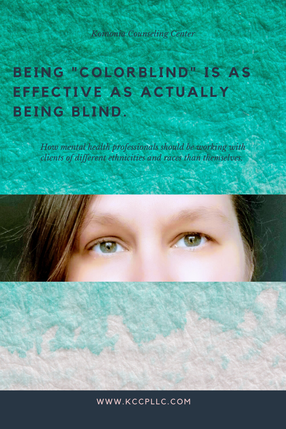 “I don’t want a politically correct answer,” our professor said in his Portuguese accent. Upon the screen in our classroom was a picture of an African man in tribal garb and a white man dressed in a blue polo shirt and khaki shorts. The question was, who is appropriately dressed? When the majority of the 60 person class answered: “both” the professor prodded the classes to answer the question with the first answer that came to mind and not the answer that society demanded. It was important to look at the background of the photo where the two men stood because the context of the photo shared vital clues as to who was appropriately dressed. The photo’s background was that of the outside, of sand and blue sky. Being politically correct gets people nowhere; it is as useful as stereotypes and living on the notion of colorblindness. The topic of this particular day was multicultural counseling in terms of group counseling. The question was followed by breaking down stereotypes and creating a dialogue between those of different ethnicities and races. Our classroom was filled with individuals from various communities; the professor himself was a naturalized citizen from Brazil. The professor continued his instruction by asking those of various ethnicities and races to give the class examples of things we may not know about a particular group. One black woman informed the class that although she was black, she was not African American but of Jamaican descent and urged her classmates to keep in mind that being black does not mean African America. She wanted to encourage her classmates to ask, be honest about what we do not know. Another woman informed the class that although she was blonde hair with lighter colored eyes, she was of Puerto Rican descent. The point was that counselors need to allow our clients to highlight themselves and that we should not assume we know how someone should be identified because we are scared to ask. Furthermore, it is our job to inform ourselves about the client’s identification so that we can better aid them throughout their counseling endeavors. “I love people of all color the same and I would treat them all the same.” Whoa, there, let’s just simmer down with all the peace, love and I see everyone equal gathering chant. I know, you likely wondering what could possibly be wrong with the aforementioned statement? After all, doesn’t it demonstrate love, compassion, understanding and acceptance? Well, it wraps everything and everyone up in a nice package. Everyone has a story, and whether they are white, black, or tan-skinned there is something in their story that has shaped their lives. Native American, Latin, Asian, or black Americans have cultures that cultivate how they interact and thrive or survive. These differences should not be feared. These differences should not be put under one rainbow because we cannot create an open and honest dialogue with someone due to societal fear. What this means is that in order to be empathetic, we have to understand what we think and feel and why we might feel resistance or anger. We need to think before we speak and maybe, just maybe do a little research. 1 Corinthians 14:10 (New International Version) states, “undoubtedly there are all sorts of languages in the world, yet none of them is without meaning. If then I do not grasp the meaning of what someone is saying, I am a foreigner to the speaker, and the speaker is a foreigner to me. So it is with you. Since you are eager for gifts of the Spirit, try to excel in those that build up the church”. We have a duty to learn about those who come to us as counselors, and this duty should extend to everyone within their daily lives. Being colorblind is only good in theory, but the actual practice of it does not create dialogue or highlight the differences the human race has as God-given creation. The aforementioned scripture reminds us that we need to understand that each language, each race, and that each story is not without meaning. Without grasping the importance of the meaning, we are doomed to continue the cycle of stereotypes and the blindness that lack of dialogue creates. Without honest dialogue, we are merely just speaking at each other. Let’s be honest people, being "colorblind" is as effective as actually being blind. We can no longer assume that we have all the answers when it comes to those of different backgrounds than us. In fact, we cannot even assume that those of similar race as us have the same values, the same story, or the same opportunities. It may take work, but we should seek to understand how those different people have different views. This can be applied to the black individuals in America and how they view the world around them, the experiences they have had. Before we say that Hispanics are stealing all of our jobs and are coming over to America illegally, we have to listen to their story. We have to take the blinders off and see the colored past of these individuals, to understand how and why they see red. We have to seek to understand why some fear blue. We have to, without revocation, level with each other and listen. We are not bound by chains as Christians; we are set forth in freedom because the Lord equips us with His love and grace no matter what endeavor we embark upon. We do not have to operate on a “this or that” mentality and there is no give away when we operate in the name of the Lord. There is a truth about educating ourselves to become not only more culturally competent, but to become integration competent as well. As Christians we need to become competent in our faith and what this means in the context of a secular world especially in a world where we are often culturally and ethnically divided. Now don’t get me wrong, we are all human and are predisposed to failure and weakness. We are never going to make it through life without making a mistake, but it is vital to call upon the grace of God when we have fallen short and to learn from our mistakes so they do not become a negative cycle of interacting with others. 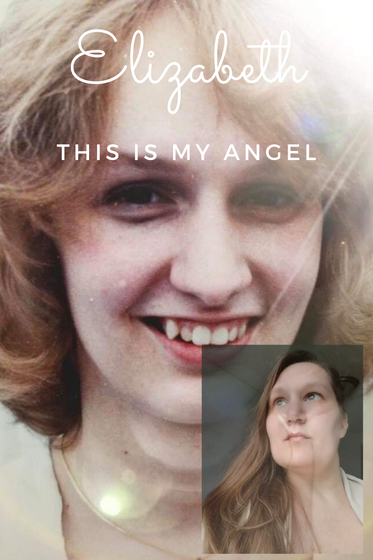 For anyone who is reading this and has lost a parent, I am so truly very sorry. I know now the pain it causes. We’re here today to honor the life of one of the most amazing women I know. She was kind, always kind, strong even when most of us would turn away and run, she was beautiful. She was a loving daughter, a grateful lover, a caring sister and staring in the best role ever, Elizabeth was mine and my brother Jason’s mom. You’re going to hear me say it over and over again, I love her so very much, we love her so very very much. I feel like the more I say it, the better she can hear it up in Heaven. I am so scared that I cannot say this enough that even as I speak these words, my love for my mother cannot get across enough. Being in her arms when I was hurting as a child was one of the most amazing things I have ever experienced in my life except for the times that I am able to hold my own children. My mom was born in Grand Rapids, MI in 1960, the middle daughter between two other sisters and the big sister to two brothers. My mom was a talented florist who loved flowers and nature. She loved being outdoors and her camping trips to Canada where she was able to be out in the wilderness with Steve, perhaps one of the greatest loves of her life. My mom’s life wasn’t easy, but she was dedicated and hard working. She worked diligently to take care of her family, always making sure we had all the things we needed. She stood and fought for her son to get the best education possible despite his learning disabilities and permed her little girl's hair because she wanted curls. On weekends she would take us to the movies and we would enjoy the snacks she snuck into the theater via her big purse. She put up with a lot of crap from me yet she never once held anything against me. There is no doubt in my mind that she loved her two children more than anything else, other than maybe her grandchildren. When I became pregnant with my first child in 2003, she was so very excited to become a grandmother and was happy that she could be the one to buy the crib. Side note, I used that crib with all 4 of my children. My mom was beside me when I went into labor and taught me the many different things about caring for an infant son. When I was faced with one of the most difficult decisions in my life, she never once judged me. She supported my decisions, even buying me slippers to have at her house when I moved back in with her for a while. When I moved to Kansas where my husband was stationed, she came down to spend time with her daughter and grandchildren. When I was pregnant with my second child, I knew that if it was a girl, her name had to include Elizabeth somewhere, and thus we have Carolyn Elizabeth. I love you mom. For years mom spent time being a mom and grandma, working 40 hours a week, taking trips camping and to Buckley. She took specially planned vacations to care for her grandchildren when I took trips out of state. In fall of 2014 something didn’t seem right. When I was preparing for a trip to Virigina for school, mom got lost enroute to my house. Mom never got lost going to places she had been over a hundred times. She knew where her daughter’s house was. It was in 2016 that my mother was diagnosed with frontotemporal degenerative dementia, I died a little inside. I denied what I believed to be the truth because I didn’t want to make it a reality that I would be losing my mother to a horrible disease like dementia. We even sat up at Buckley and talked about getting her into the doctor and we thought of so many other options that could be causing her recent mishaps in daily life. After her diagnosis, I made the decision that she would move in with us. It was amazing, mom never fought me. To this day, I am amazed that an independent woman who had her own life wouldn’t even put up the slightest fight regarding moving in with her daughter, husband and four children. We made it work. It wasn’t easy by any means, but we enjoyed boating trips, family dinners, hiking trips to Pennsylvania, Christmas parties. Everyone knew that if you got the family of 6 that you had to plan on a family of 7 instead. When it came time to make the decision to move mom into a care facility, it wasn’t easy. I still vividly remember sitting down on a Tuesday evening, mom's caregiver, mom, Michael and myself and the tears that rolled down her face. I died some more that day, seeing my mom sad to be leaving our home, to be going into a facility. She was not happy with me, and the little bit that she was able to express herself, she sure showed it when I went to visit her the first few times. She would have nothing to do with me and continued to walk up and down the hall. It wasn’t until Marie started walking beside her that she started to show her love again, holiding out her finger to allow her youngest granddaughter’s small hand to hold. Still throughout this time, I knew that my mother was somewhere nearby. I knew that she was well taken care of her, the knickname “Sissy” was given to her and the nurses loved and adored her. She was the baby of the wing and so many times I saw how much they doted on her. I wasn’t able to see her the last few months due to the restrictions in place becasue of COVID-19. I would get calls here and there about her. Then, early last week, I got the call that she wasn’t eating or even moving. Mom loved to move, a lot. Unless she was sleeping, she was moving constantly. I still didn’t hold on to reality, even when my brother and I were permitted to go in and say good-bye, and I wonder how long I will hold on to the vision of my mommy fighting to breathe, the reality didn’t sink in. I just wanted one more chance to tell her “I love You.” I kissed her forehead before leaving and she was warm and her skin soft. Over an hour into Wednesday morning, her 60th birthday, I received the call that she had passed away. I tell you, reality hurts like your heart being ripped from your chest. She fought a good battle, there were tears and frustration, and fear, dancing to music, and I cannot even imagine what it must have felt like to be her. She was amazing. When I hear my children call “mom” “mommy” or some version of the pronoun, I think of her. I pray that she is proud of the legacy that she leaves behind. The reality of her not being on this earth leaves me in breathless tears. I believe in Heaven, but it wasn’t until my mom got there that I really saw the reality of it. I know she is in a better place, being “taken care of by God” as her granddaughter Rebekka put it the other day, but I am still so angry and fight with the fairness of it all. In church around Thanksgiving we are given the opportunity to express what we are thankful for. I am thankful to our church family for welcoming our family of 7. I want to thank my in-laws for welcoming my mother like she was a blood relative into Christimas and other parties. I want to thank my own dad for sitting with mom and making her smile when she was sick and tired of her daughter bossing her around. I have to thank Steve for loving my mom because she really really loved you. Lastly, I have to thank my family, my husband for being there beside me through one of the biggest heartbreaks of my life. Thank you everyone who is here. Thank you God for giving me such a wonderful mother, you blessed me beyond belief. Mom, I love you, I love you, I love you, I love you. 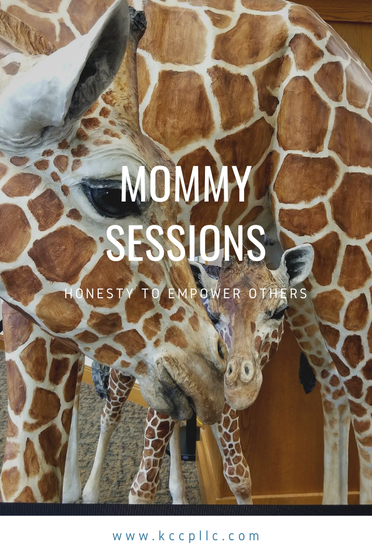 There is a small pile of dishes on a few different counters in the kitchen, neither teenager has done their chores all week, little girls are fighting over the most ridiculous thing (yet again) and I am pretty sure I forgot to get toilet paper the last time I went shopping for the third time this week. Oh, there are so many times I wish I could hit a mute or pause button when either one of the youngest kids asks the same question over and over again. I don’t remember so many questions with the older two kids. With working two jobs, raising four children and barely taking care of a home, I find myself exhausted at the thought of making yet another dinner. What is the point of this? I just wanted to take a moment and let you all know that I get it. I never imagined that I would be the parent of four children or even be remotely good at it. I mean, I am not going to lie. There are times when I have forgotten children at activities or even took a night or three off from homework when I knew that it was important that I sit down with my child and listen to them read or do math. There are nights when I have not even taken the time to brush my kid’s teeth (I know, audible gasp!). You know, now that I think about it, I am not sure sometimes why my kids even like me. I have a tiny tot who loves to kiss her mama so much that I am worried she won’t even make it to the bus in the morning. She hugs me good-bye even when walking her brother and sisters down to the bus. So, what have I done to deserve to be their mother? One of my other posts will explain this post/video all the better, “A Bunch Gut Career” where I discuss some of my experiences as a professional counselor. I think about the times that I have likely been a failure as a parent. I won’t get into them, but I imagine that you can think of a few or many times when you have been less than a good parent. We’re humans, so we all do the best that we can. I contact teachers and do my best to stand up for my kids when I need to. I try to get them into the best programs as possible. I was fantastic getting my older two kids to the library when they were little for craft and story time. I always, always let them know on a regular basis that they are loved and that I am proud of them. Mom rushes to and fro bringing lunches and music folders to school when they are forgotten. I try to make sure they are all well-fed, and when our youngest and tiniest child hasn’t seemed to grow much at all, I even went to a nutritionist only to learn that I don’t have to fight her to eat (score!). Parents will struggle with their own demons and will make terrible decisions in life. It’s impossible to avoid, but I wonder if you’re reading this if you have thought of the good things that make up your parenting relationship. We must always remember that there is room for improvement, no matter what. Mother’s who seem like supermom (chill) even for you there is room to grow. Us mother’s who feel lazy now and again, chill cause you’re not as bad as you think. Listen, I love being a mother. I didn't know that I would love it as much as I do. However, it does not mean that sometimes I am not a big fan of snot noses or running this kid here or there or making one more dish for a kid party. I have felt lonely and angry as a mother. I am doing the best I can to raise the next generation and I pray, a lot. I share as much as I can with others and then I pray again. 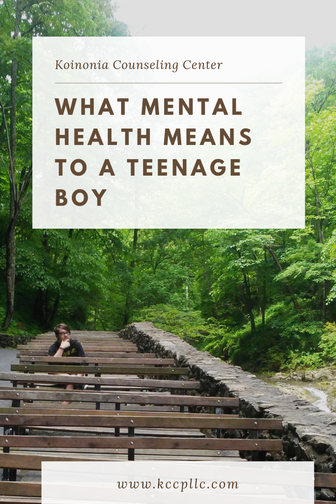 We are all stuck inside here in Michigan. The kids have had off school for the past four days due to the extremely cold and blistering weather. YEA! The excitement overwhelms me as I try to combat our two youngest children who seem to be finding new ways to make messes. By the third day, our teenage son Grey said, “enough is enough already” and hopes we have school the last day of the week. I took this time to bother Grey about his opinion of what “mental health” meant to a near 15-year-old boy. To start, I asked Grey, what he thought when I asked him what, “mental health” meant. G: Something to do with your mind or state of emotions. Basically, it’s stuff that is in your mind and how you react to certain things. Nosy Mom: Personally, how do you feel that your mental health has been? G: Right now, things are going well. In 8th grade, things were rocky because some days I would feel good and then there were days where I felt low and sulked in bed. I can attest to this myself. During his 8th grade year I noticed something different about our son. He is the eldest of four, so all the adventures we were having with him were the first of our lives as parents, so when his demeanor began to change, I was concerned. I began to weigh out what was the change of his hormones due to puberty and what was the change due to the circumstances in his life. Our cute little boy was turning into a teenager and that I understood, but he seemed angry a lot and sad. He never wanted to be around anyone and rarely spoke more than a few words to us unless he had to. He slacked on his chores (more than normal for a teenage boy) and he would scratch up his arms. Nosy Mom: What helped you make it through your 8th grade year? G: Having supportive parents, having people to talk to and realizing that I did not have to be sad anymore because I had support Nosy Mom: Was there any situation in your life that made things seem worse? G: Um…yeah, when grandma was living with us and that kinda made me have more anger. I knew she had dementia, but I just got really angry because she was there. Now what I must mention and what I think parents need to keep in mind is this, circumstances and timing matter to your preteens. When my mother came into the home, we cut our son’s room in half because of the little space we had (seven people in a three-bedroom home). Grey was barely into his middle school life when she came into our home and this is also when “the change” began to happen. Gosh, I cannot believe I used that word as it sounds so goofy mom like, but it’s true. Our son was on the cusp of becoming more of an individual and here came his grandmother, taking his space and his mother’s time and attention. Nosy mom: What would you tell other kids/teens your age if they feel what you are feeling? G: It really depends on how their past goes. If they have good parents who will listen to them, trust your parents. Still try to talk to them, but I would say ask for help. Don’t do stuff alone. Ask friends for help. Nosy Mom: Do you think that you could be helpful to a friend G: Yeah, I could be helpful. Nosy Mom: What would you tell parents? G: Well, you should help your kids…try to figure them out, don’t rush them, have patience…if they are not letting up or getting better, push them a little. Don’t push to the point where you push them away. Time is the most important. Nosy Mom: What’s the funniest think you can think of regarding mental health G: I never thought of the funniest thing about mental health, but I guess it’s that one day you can be there then you can be down. Mood swings are a big thing. Nosy Mom: What do you think about the aspect of not having control of your mind, body and emotions? G: I’d say, you may think that you do have control…you have control…I think that a lot of kids my age think that they don’t have control. I know most people would say that you don’t really have issues with depression if you can control it, but you can reach out for help. Getting help from others is a good step in gaining control. People may not understand “at first” but give them a chance to try to help and understand. If they aren’t listening or helping, then reach out to a teacher or friend. Do not stop until you have reached someone that can help. This is where I add the truth about medication. Now, first and foremost, you must speak with your primary care doctor about your child’s behavior and actions. YOU KNOW your child the best and if something is off with their behavior and actions; you know whether something is normal for them. I am not saying automatically get on medication, but you need to talk to your doctor about what is going on in order to make sure that something medically is not happening. True, mental health is medical, but we have a section in our manuals that leaves room for “due to other medical conditions” that may contribute to behaviors and thoughts that mimic other mental health disorders. From there, seek mental health advice from a therapist/counselor that specializes in working with adolescents. If medication is deemed necessary, don’t scoff this and work with your child’s doctor and counselor to make sure that your child is on the right regimen. This is a situation that all eyes should be on your child (yours, doctors and therapist’s). If you feel like something is missing in your child’s care, be the advocate. Be the example for your child that they should advocate for their health, by caring about their health by listening to them when things do not seem to be going right. Nosy Mom: What do you think about your mom being a therapist? G: I think it’s actually really good…cause if your mom is a therapist you can just go to her instead of paying someone else. You can just like walk in and go to her and be like, “okay, here’s what is going on.” Many parents do not have the advantage of being a mental health professional, nurse or doctor but that does not mean that you should not have patience and seek out the advice of others. I mean, I wouldn’t attempt to fix my own vehicle, I would be lucky enough to go to my husband who happens to be a technician, and he’d fix it. Same as my husband defers to me when it comes to issue pertaining to our children’s behaviors, emotions and thoughts. Asking for help IS NOT a weakness. IT IS a strength. So, I always want to encourage people to seek out mental health professionals if they feel like they have a significant issue or if they just need a mental health tune up. I am a passionate advocate for mental health awareness, which means that I am trying to make the mental health experience a little less scary. I want to share what it is like not only being a therapist but being the one “on the couch”. I have mentioned in one of my related articles, “Getting Comfortable with Psychotherapy” that I have been on the receiving end of therapy, twice. So, I have a pretty good idea of what is going through your mind when you make the phone call, when you wait in the waiting room, when you sit down in front of a stranger who knows nothing about you but is supposed to bring you back to equilibrium. Today, a few questions that I wanted to answer are “do we miss our clients” and “do we speak about our clients”. First, in terms of speaking about our clients, mental health professionals SHOULD ALWAYS maintain strict rules of confidentiality. Only ever bringing you up in clinical situations in order to garner the best help possible for you, our client. I going to be honest here, there are some really difficult clients that lead to really difficult sessions. To keep giving you the best care, we absolutely have to digest with somebody, a colleague with whom we maintain strict confidentiality with. True confession here, there are and will be times where we have to talk over what happened in a session and possibly talk over a diagnosis, but I stress again, this is only in a clinical private / confidential setting. I do not talk about you with my spouse or my BFF. Speaking for myself and my partner at Koinonia Counseling Center, we believe that confidentiality is one of the most important things in counseling because it allows us to maintain a therapeutic relationship, which is essential to having a successful therapeutic intervention. The relationship between you and your therapist, the honesty, being able to know that what you say is held in strict confidence (barring there aren't any items that break confidentiality like abuse or threats of suicide and there's no court order documents that we have to give up) are all vital aspects of counseling.
In regards to missing our clients, yes, I would absolutely say that we do miss our clients. However, we also know that we have to maintain a professional relationship. We are not allowed to call you up and say, “hey we want to be your best friend, do you want to go out for coffee?”. There are actually strict guidelines for us in terms of when we could ever see our clients out of the office, date our clients or have any form of sexual relationship with clients. The ethics of our profession demands this in terms of years and certain relationships could cause us to lose our license. I can share that I miss clients in terms of seeing them happy with the progress that they have made through out our sessions, knowing that my life’s purpose is helping you. I want to state that while I thoroughly enjoy helping people, I would definitely say that you shouldn’t expect to hang out with your therapist. Don't go into therapy having the expectation that they're your friend. Psychotherapist/ counselors are around to care about you 100%, there to have your best interest at heart, they’re there to be a neutral party. We walk a fine line of being on your side but making sure that you are grounded and can maintain proper boundaries. So yes, we as therapists do talk about our clients (clinically) and we do miss our clients because we have entered into this field because we remain hopeful for others. I pray that other therapists go into the mental health field because they want to help people become the best versions of themselves that they can be. 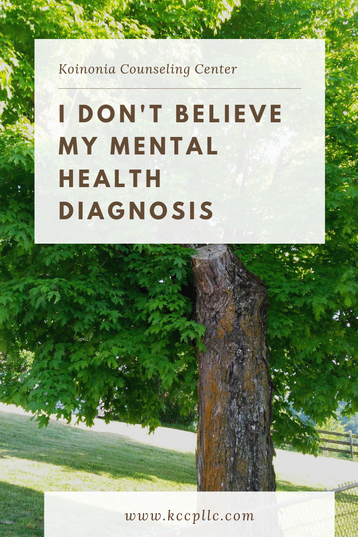 Okay, so I have been on both ends of the spectrum and roles here. I have been that therapist who has had clients who do not believe in the diagnosis that was given to him or her. As a therapist, this led me to a lot of frustration, trying to get a client to see what I had seen and the diagnostic criteria that I used to come up with such an assessment. Needless to say, we had an open and honest dialogue about why I had diagnosed a client with the disorder and many clients eventually came to terms with a diagnosis even though the diagnosis included medication and many clients are sadly non-medication compliant. Let me put it out there, I do not think that my diagnosis is the end all, be all. If you want a second opinion then by all means, please seek the advice of another mental health professional. What I ask you not to do is outright deny any possibility that what we have spoken about in session is ridiculous or a lie. When I sit with a client during diagnosis time, we discuss the reasons for the diagnosis, I ask what they think about the diagnosis. I have had clients tell me straight out that they think their diagnosis is something more and when we delve deeper into their stories, I end up agreeing with them and changing a diagnosis. This also means that I ultimately change their treatment plan, exercises and likely what theory that I plan on using to treat a client. When I was diagnosed with Post Traumatic Stress disorder I had a very difficult time being able to even say "out loud" that I had post-traumatic stress disorder. This reason, for me, came about because of a traumatic car accident in which there was the high potential for me to be loose all four of my children in one fell swoop. I felt ashamed that I had the diagnosis, but that was because I did not feel like I deserved it. Now, I know better and most certainly where my diagnoses with a badge of honor. Post-traumatic stress disorder, depression and anxiety are the most prevalent mental health issues that I deal with on a daily basis, using my cognitive exercises and medication. Again, what I am telling you here is to not take whatever diagnosis that you can get and run with it; it is vital that you talk it over with your mental health professional. This is another time that I stand on my soap box and remind you that you have to advocate for yourself and your mental health. Listen to your mind and your body, it will tell you that something is not quite right, but do remember that those you seek out in mental health professions have education that they paid for in order to help you. See how you can work with your therapist or clinician in order to find the best outcome for you. You have to be the catalysis for change, otherwise, we are just in the room to hold down the chair and practice on our penmanship and note taking. 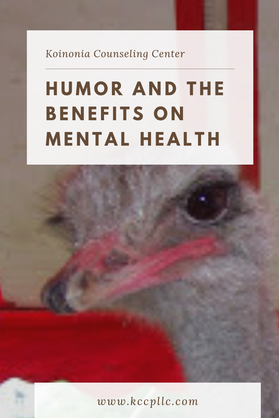 Humor is wonderful. I know that I thoroughly enjoy the feeling of a good laugh. I also enjoy intelligent humor that really makes you think then hits your gut with a punch line. I use humor daily to combat my own mental health issues, mainly depression and anxiety. I use humor when I mentor, when I counsel and well, basically any time I can get a good joke in. Our pastor is fantastic at adding a punch line to his sermons, which is most surely necessary for me to stay engaged. It’s like the song says in Mary Poppins, “I love to laugh” especially to the point where my cheeks hurt from smiling. Below are some ways that humor is vital to our mental health. I could not come up with this list on my own and have sources I used from research. As I have a Psychology background, I often site in APA, so please bear with me if that is what you see. Humor Can:
Moral of the story, laugh! Please, don’t laugh because you are trying to hide something deep and dark, but laugh so it can heal you. References: Journal of Rational-Emotive & Cognitive-Behavior Therapy, Vol. 20, Nos. 3/4, Winter 2002 (2002) HUMOR AND ITS CONTRIBUTIONS TO MENTAL HEALTH. Bill Borcherdt Clinical Services of Winnebago County and Private Practice, Neenah, Wisconsin. Schneider, M., & Voracek, M. (2018). A joke a day keeps the doctor away? Meta-analytical evidence of differential associations of habitual humor styles with mental health. Scandinavian Journal of Psychology. |
This Is What You'll Find HereHere you'll find all the extra goodies like blog post, podcast, public speaking events and other community activities. Archives
December 2022
Categories |

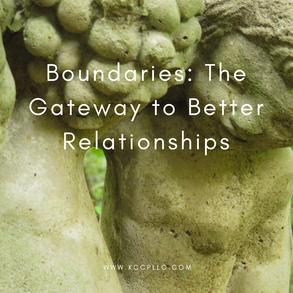

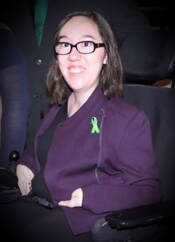

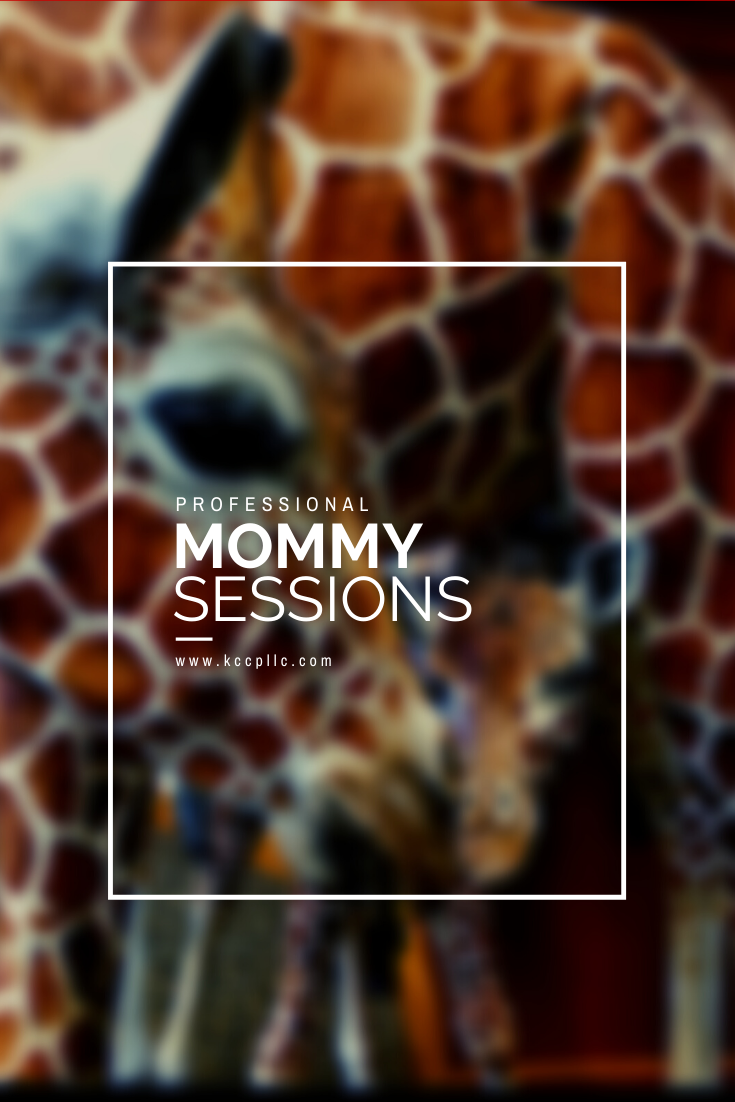
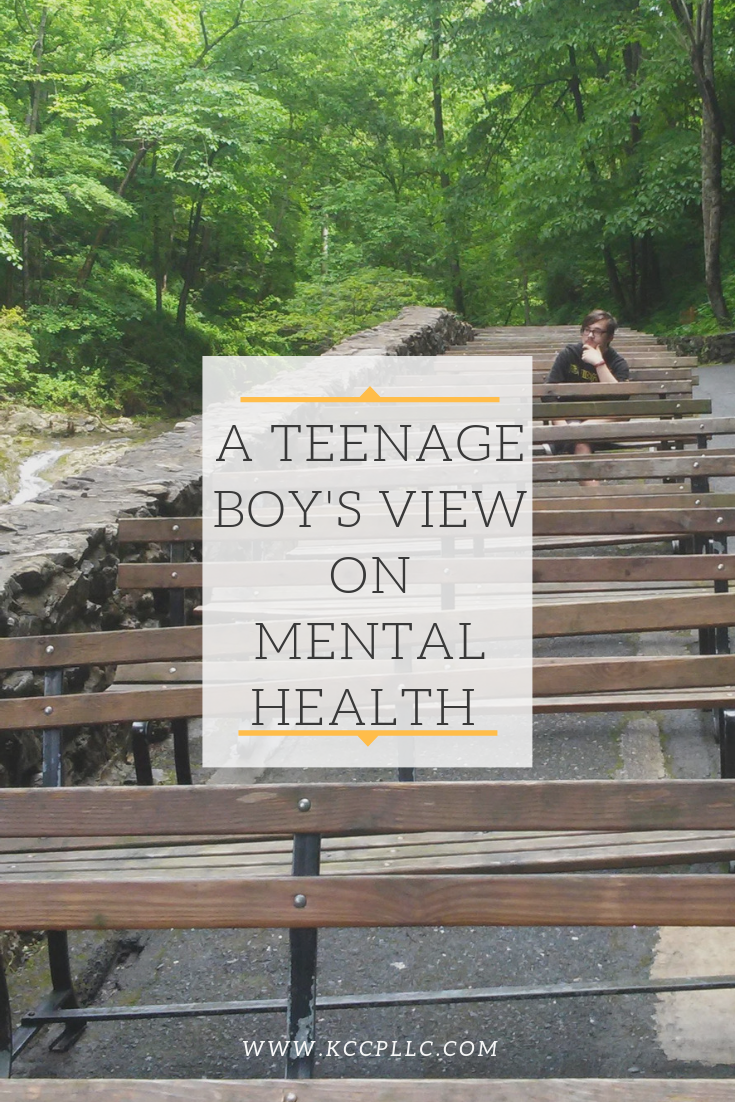
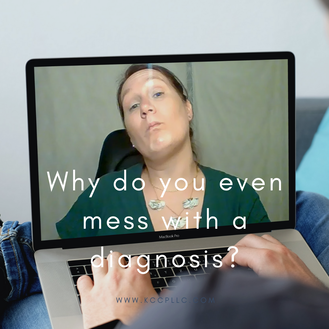
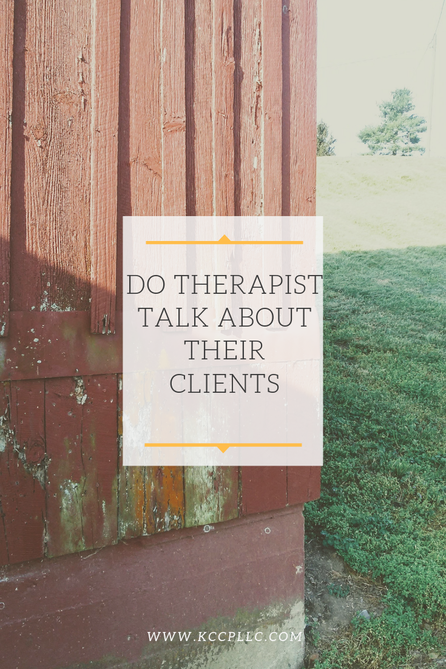

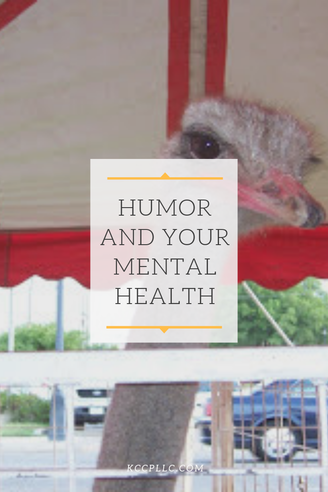
 RSS Feed
RSS Feed